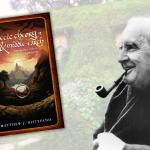Mary E. Hunt: “Communion or Disunion?: Sacraments do not ‘belong’ to the clergy“
The shift is in models of authority — from the top down, clergy-centered model to a more rounded, communal one. It is a new thing under the contemporary Catholic sun but it is real.
… One account of Ms. Johnson’s experience at her mother’s funeral included a detail I cannot verify but can well imagine. A blogger who spoke with her [John Shore] wrote that after being passed over by the priest for Communion, Barbara actually received a host from a layperson who was acting as a Eucharistic Minister at the mass. Lay ministers distribute Communion at many if not most Catholic churches at this time of increasingly fewer priests. It was the unordained person, not the priest, who did the right thing.
This act, based on pastoral common sense, is Catholic clerics’ worst nightmare, what I assume keeps Roman and diocesan officials awake at night. Lay people are taking on increased authority, begging no one’s permission or pardon. Clergy are coming to realize that the Eucharist does not belong to them any more than they own church buildings, theology, or ministry. They are not in charge of who receives Communion, whether politicians or waitresses, divorced, remarried, and/or queer. Whether in cathedrals or base communities, people decide for themselves about Communion, just as they decide about contraception, sexuality, and marriage. The Catholic community is changing indeed.
Joe Atkins: “The Tea Party and the South: Preaching the gospel of raw capitalism and the evils of government“
In the 1940s, CIO organizer Lucy Randolph Mason, a Virginia aristocrat and committed Episcopalian who believed in the labor cause, often found herself face to face with the mill village minister, a man usually totally compromised by the financial support he got from the mill owner and one who thus considered labor unions minions from hell. She describes one of them, Preacher Jones, in her autobiography To Win These Rights: “The preacher dropped his bull-like head and hunching forward said to me: ‘You don’t believe in no kind of religion — you believe in a social religion and that ain’t Christianity … .’ I, too, leaned forward and asked earnestly, but politely: ‘Then you don’t believe in the teachings of Jesus? … His whole life … (was) all part of a great social religion.'”
In the modern South, Pentecostal, Methodist, and Baptist leaders are joined by first generation Southerners who came to Atlanta, Nashville, and the Research Triangle in North Carolina with their business and engineering degrees and pro-business ideas, set up shop, and laid the foundation for the rise of Sunbelt South politicians like Newt Gingrich and George W. Bush. For those politicians, the old bugaboo of communism that preachers used to fire congregations back in the 1940s was replaced by the bugaboo of government.
But, just as Preacher Jones was a tool of the mill owners to keep the workers pliant and passive, the religious right today is also merely a tool for the oil barons and Wall Street types who truly rule. In the 1950s and 1960s, [Purdue historian Darren] Dochuk writes, oilmen H.L. Hunt and J. Howard Pew stayed busy “marshaling their fellow church folk in fights for right-to-work legislation and the deregulation of industry.”
… Instead of Hunt and Pew, today we have the Koch brothers.
Michael Sean Winters: “How the Ghost of Jerry Falwell Conquered the Republican Party“
Rigid obsession with orthodoxy in all political matters … now defines the Republican Party. Orthodoxy … was the signature of Falwell’s style. And irony, tolerance, and pragmatism were never his strong suits. They did not sit well with the earnestness and literalism of fundamentalist Christianity. “In the intellectual battle of the present day there can be no ‘peace without victory’; one side or the other must win,” J. Gresham Machen, a professor of New Testament at Princeton Theological Seminary and one of the founding lights of fundamentalism, wrote in 1923. Falwell’s folksy sermons transferred this absolutism about church doctrine to the political realm. …
It was this cast of mind, the sense that political and religious facts were as obvious as his “standing here right now,” that was arguably Falwell’s principal contribution to the shaping of the modern GOP. Yes, Falwell made abortion a key issue; he liked to say that you could no longer run for the Republican nomination to be dog catcher without articulating your position on abortion. But the arrival of an orthodox temperament to Republican politics was not only about abortion or about social issues. It soon extended to everything.
Whatever the value of Falwell’s black-and-white approach to theological debates, this worldview, when carried over to the political realm, resulted in a coarsening of discourse and increased ideological rigidity. Politics does not save, but the newly engaged religious right brought all the fervor of, well, evangelists, into discussions of economics, foreign policy, the environment, and a host of what had previously, and properly, been considered mundane concerns. With evangelical voters, everything took on an eschatological veneer.
… Before Falwell, if liberals wanted to increase the minimum wage by one dollar and conservatives did not want to increase it at all, they could compromise and raise the minimum wage by fifty cents. Before Falwell, the American public’s ambivalence about abortion could find expression in the Hyde Amendment, which does not prohibit abortion but denies federal funds for the procedure. After Falwell, such compromises were seen not as part of the art of governance, but as a betrayal of first principles. After Falwell, conservatives could not entertain differences of opinion on many issues without being accused of political heresy. Grover Norquist is as much Falwell’s heir as any preacher.
Ta-Nehisi Coates: “On Making Yourself Right“
When I heard that Andrew Breitbart had died, I was saddened. It is natural to think of the damage Breitbart did to people like [Shirley] Sherrod by embracing lying as a weapon. But I found myself thinking of the great injury he must have ultimately done himself, for by the end of the Sherrod affair, he was a man lying only to himself and other liars.
By embracing that deception, by neglecting to research Sherrod before putting up a clip of her talking, by electing to see her as little more than a shiv against the hated liberals, he deprived himself of knowledge, of experience, of insight, of enlightenment. That he might learn something from Sherrod, that he might access some power from her life, and pass that on to loved ones and friends, never occurred to him. …
That is what took me to sadness. I have experienced curiosity as a primarily selfish endeavor. It originates in the understanding of the brevity of life, and the desire to see as much of it as possible, from as many angles as possible without doing too much damage to my morality. The opposite of that — incuriosity, dishonesty, the opportunistic deployment of information — is darkness. Breitbart died, like all of us will, in darkness. But as a media persona he chose to also live there, and in the process has impelled countless others to throttle themselves into the abyss.
… It is wholly appropriate to be sorry that Andrew Breitbart died. But in the relevant business, it is right to be sorry for how he lived.














